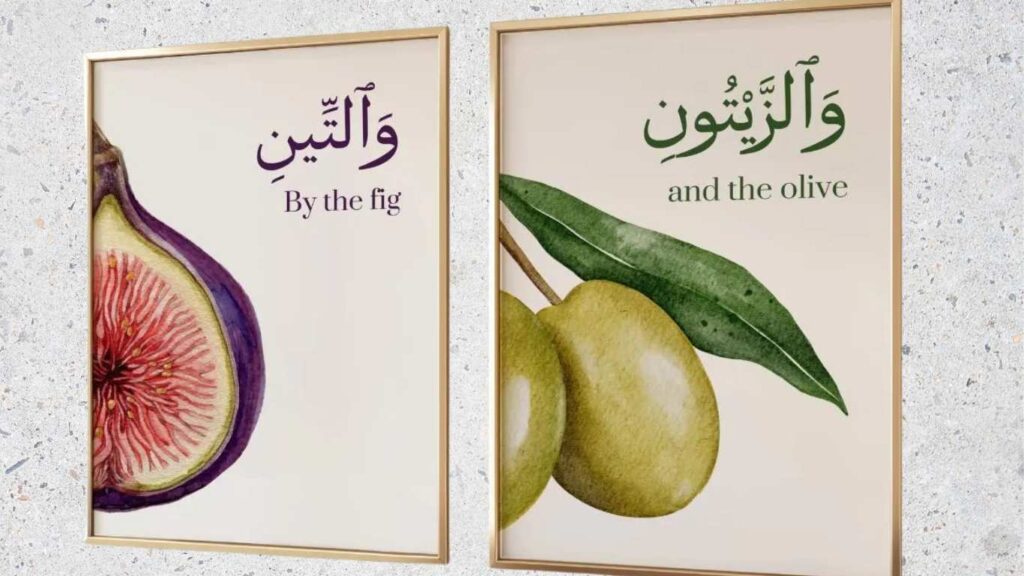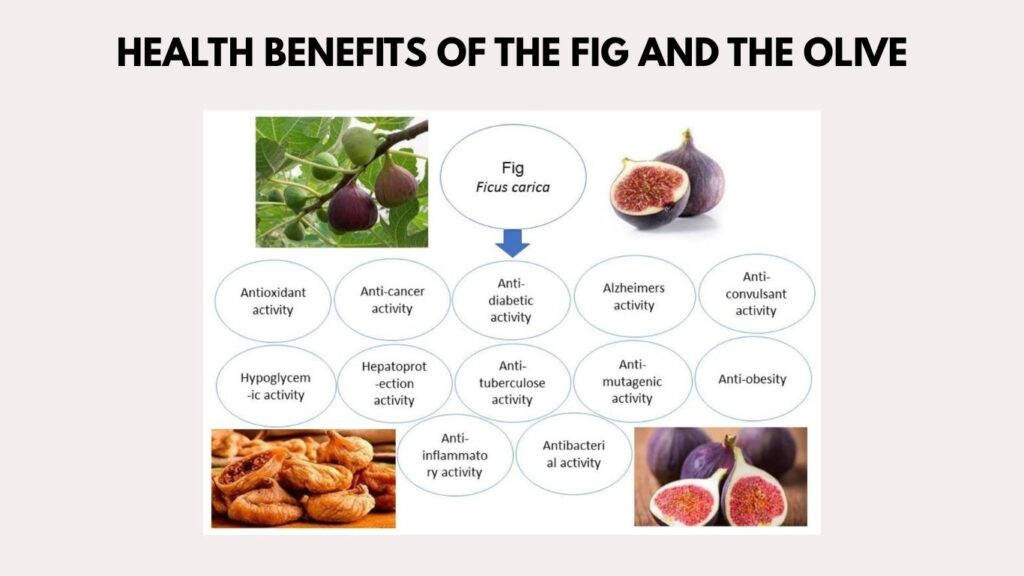In the Quran, God often takes everyday objects from nature to tell us deeper truths. One beautiful example that has always deeply inspired me is found in the opening of Surah At-Tin, verses 95:1-4:
“By the fig and the olive, and the mount of Sinai, and this city of security, We have indeed created man in the finest of molds.”
At first, this phrase seemed quite simple, but after reflection and learning from respected scholars, I discovered there’s profound significance hidden within these two ordinary fruits, the fig and the olive.
Through these verses, God gently reminds us of the unnoticed benefits and miracles of creation, subtly guiding us to reflect on what is often taken for granted or considered unknown.
Just as great works of art are created from seemingly small or even broken pieces, the mention of these fruits alongside sacred landmarks like Mount Sinai and the secure city symbolizes spiritual security and perfection. God is trying to remind man that the finest wisdom often comes from the simplest signs around us.
Symbolic Fruits in the Quran

When I first explored the Quran, I was fascinated by the numerous fruits it mentioned, like dates, grapes, and pomegranates, but I quickly learned that the fig and the olive hold a uniquely special significance.
In fact, Islamic scholars suggest these two fruits represent the blessed lands of Palestine and Syria, regions historically known for the abundant production of these fruits. Additionally, the mention of Mount Sinai and the sacred city of Makkah within these verses hints at a broader symbolic meaning rather than simply describing their physical appearance.
Reflecting more deeply, I realized God might be pointing us toward something spiritually profound. These fruits, linked to the regions where many beloved prophets preached, underline the deep context and holy symbolism of places sacred in Islam.
The olive and the fig thus become symbols that connect physical nourishment with spiritual wisdom, highlighting the profound way in which simple objects can carry divine messages far beyond their apparent form.
You might also like: Is L-Glycine Halal or Haram?
Health Benefits of The Fig and The Olive

The mention of the fig and olives in a spiritual context is also a gentle reminder that these fruits have incredible health benefits for mankind. From personal experience, I can say they’re not just delicious but also remarkably nutritious. Figs are high in fibre and rich in antioxidants, which can help lower blood pressure and significantly improve digestion. Similarly, olives contain healthy fats known to combat inflammation, enhance heart health, and even reduce the risk of chronic illnesses.
In fact, recent studies highlight that people who regularly consume olive oil, particularly in Mediterranean climates, show lower rates of cancer. This becomes especially relevant today, as our natural world faces rapid environmental destruction and worsening climate change. Embracing these foods is not just about personal well-being but also about recognizing the importance of respecting and protecting God’s creation. These fruits, deeply rooted in the genesis of humanity, deserve to be cherished, making their symbolic message even stronger for contemporary populations.
Spiritual Nourishment
Initially, when reading the Quran’s mention of figs and olives, I mainly associated them with their delicious taste and known health benefits. However, reflecting deeper on these simple fruits in our daily lives, I’ve recognized a plethora of hidden spiritual advantages that Allah is subtly highlighting.
They’re more than mere physical sustenance; they’re powerful symbols pointing towards faith, reminding us of the connection between physical nourishment and spiritual well-being. By choosing these fruits specifically, Allah directs our attention to His continuous presence in our daily lives, offering not just nourishment but countless spiritual advantages, reinforcing our faith through everyday experiences.
You might also like: Is Whey Protein Halal or Haram?
FAQ
At-Teen
When Allah SWT mentions the fig in Surah At-Teen, it’s alluding to the story of Prophet Noah, whose ark rested in an area famous for figs, possibly the valley between Hamdan and Hilwan, as explained by Imam Al-Aloosi in Tafseer Rooh al-Ma’ani. From my experience reading these verses, it seems clear that the mention of the fig symbolizes renewal after hardship, as Noah and his people were saved and given another chance at life.
Az-Zaytoon
As for the olive, or Az-Zaytoon, renowned scholar Ibn ‘Abbas pointed out that it’s not merely about the fruit, but a deeper symbolism tied to the blessed Mount of Olives near Masjid al-Aqsa. This sacred place, even acknowledged in the Bible, is closely connected to the life and prophethood of Prophet Jesus, who spent time in prayer and devotion there. The olive thus embodies peace, purity, and divine guidance.
Toori Sineen
The next mention, Mount Sinai (Toori Sineen), directs our attention toward Prophet Musa, where he directly received revelation and profound wisdom from the Lord. This great moment affirmed the human ability to connect with the Exalted, reminding us that we are indeed capable of reaching a high spiritual stature, as suggested in the Quran.
Hadha al-Balad al-Ameen
Lastly, al-Balad al-Ameen (the peaceful, secure city) points us toward Ibrahim and Prophet Muhammad, fulfilling the profound du’a of Prophet Abraham, recorded in Surat al-Baqarah. Abraham asked Allah to make Makkah a secure city filled with abundant fruits, and his prayer found its answer centuries later when the beloved messenger, Muhammad, emerged from that secure land. Here, Allah takes an oath by sacred objects, subtly pointing out the divine link between physical blessings and spiritual purity, teaching humanity about their best form, and reminding us of our noble origin through these five remarkable men.
Fahad Ali is a youth mentor and social activist committed to empowering the next generation of Muslims. By addressing contemporary issues through an Islamic perspective, He guides young minds in navigating faith, identity, and personal growth in today’s world.